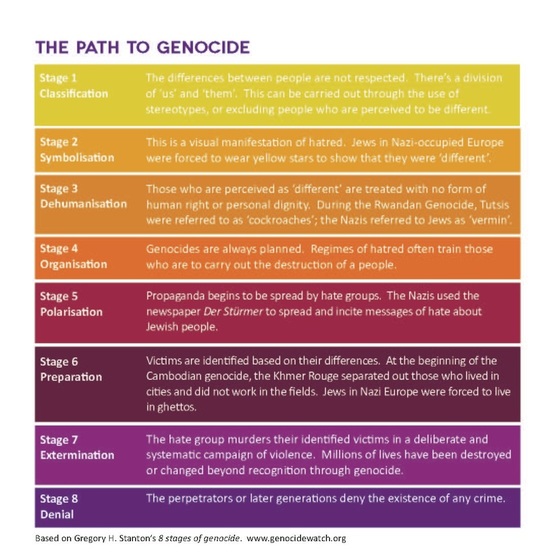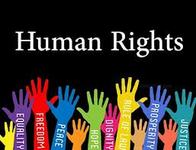The act of systematically trying to wipe out an entire race or people was formally made illegal under international law in 1946. The UN defines the act as being “intent to destroy, in whole or in part, a national, ethnical, racial or religious group”. There of course have been many terrible historical examples of such acts ranging from The Holocaust (see last year’s WOTW; Shoah), the Khmer Rouge in Cambodia, the slaughtering of Muslims in the Bosnian War and the Civil War in Rwanda.
But how do such terrible events come about? They certainly don’t just occur overnight and indeed build up over years or decades. We would all like to believe that such an event could never happen in our own time and nation, but one can easily envision that this was also said by ordinary Germans in the 1930s or by Bosnians in the 90s. www.genocidewatch.org suggests that there is a process that tends to occur, based on the work of Gregory H Stanton:
This week our Year 11 IGCSE pupils will take part in a visit to Northwood Synagogue where they will hear directly from a survivor of the Holocaust. This is only one part of the work of the Holocaust Memorial Day Trust to make young people more aware of the events of the past so they can ensure that it never happens again. To use the slogan of HMD 2016 #Dontstandby









 RSS Feed
RSS Feed
